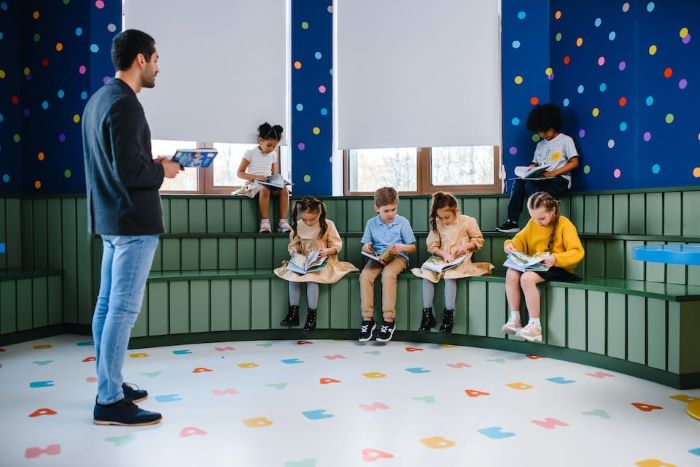The Essential Qualities of an Effective Early Childhood Teacher

In nurturing young minds, an early childhood teacher holds the key to unlocking a world of possibilities. With the primary goal of best care and development for children, these educators possess a unique blend of qualities that extend far beyond conventional teaching skills. From patience and adaptability to creativity and strong communication, the role of an early childhood teacher is a tapestry of essential attributes that shape the foundation of a child’s growth.
Table of Contents
Patience and Empathy: Nurturing Young Souls
The cornerstone of an effective early childhood teacher lies in their wellspring of patience and empathy. As these educators embark on guiding children through their formative years, patience becomes their guiding light. Working with children demands a level of understanding that transcends the ordinary. Each child’s pace of learning and grasping concepts is distinct, and a patient teacher comprehends and respects these variations. This patience, however, is incomplete without empathy. To truly connect with a child, an educator must step into their shoes and perceive the world through their eyes. Empathy establishes trust and creates a haven for children to express themselves, fostering an environment that nurtures holistic development.
Adaptability: Tailoring Education to Individual Needs
An effective early childhood teacher is akin to a chameleon, adapting effortlessly to the evolving needs of their students. Every child is a universe of unique qualities, learning styles, and developmental stages. The teacher’s ability to seamlessly pivot their strategies enables them to cater to these diverse requirements. The art of adaptability in education ensures that each child receives personalised attention and is allowed to thrive. Whether altering teaching methods or tailoring activities, the adaptable teacher leaves no stone unturned to ensure no child is left behind.
Communication: Building Bridges with Words
The significance of communication in education cannot be overstated, especially in early childhood teaching. A skilled early childhood teacher is a masterful communicator who understands that effective communication is a two-way street. They employ clarity and simplicity in their language to convey instructions and ideas to young learners. Moreover, they encourage children to express themselves fluently and fearlessly, nurturing language skills that form the basis of future academic achievements. But communication extends beyond the classroom; maintaining open channels of dialogue with parents creates a united front in supporting a child’s growth journey.
Igniting Creativity: Crafting a World of Wonder
An effective early childhood teacher crafts an environment where imagination thrives. These educators stimulate curiosity and critical thinking through imaginative storytelling, hands-on experiments, and innovative activities. Creativity enriches a child’s learning experience and equips them with skills that transcend textbooks – skills they’ll carry into adulthood, fostering a lifelong love for learning.
Collaborative Spirit: Fostering Holistic Growth
Education is a collaborative effort, and an influential early childhood teacher embodies the spirit of teamwork. Collaborating with fellow teachers, staff, and parents creates a harmonious ecosystem where a child’s growth is nurtured from all angles. Sharing insights, ideas, and strategies ensures that every child receives comprehensive support, both in and out of the classroom.
Lifelong Learning: Navigating the Ever-Evolving Landscape
Education is in a perpetual state of evolution, and an influential early childhood teacher is a dedicated lifelong learner. Staying abreast of the latest research, teaching methodologies, and child development theories enriches their ability to provide the best care and education. The teacher’s approach reflects this commitment to growth, translating into an improved student experience.
Conclusion
In the hands of an effective early childhood teacher, young minds are moulded with care, compassion, and dedication. Patience, empathy, adaptability, communication, creativity, positive reinforcement, teamwork, and a hunger for continuous learning intertwine to create a tapestry of excellence. These educators ensure children’s best care and development and lay the foundation for a brighter future where each child’s potential can flourish and bloom.










